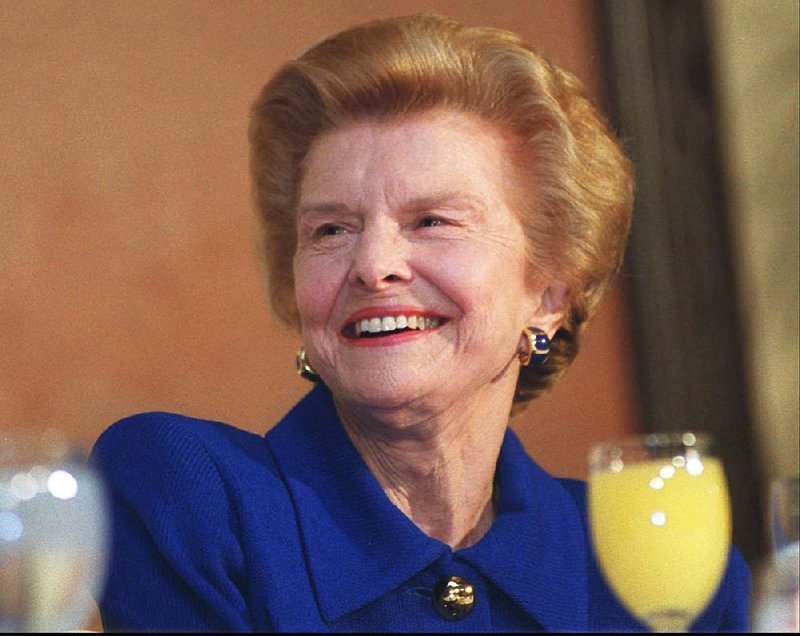BOSTON -- It's no exaggeration to say Betty Ford changed the national conversation about addiction.
The former U.S. first lady, who died in 2011, established drug and alcohol treatment centers credited with helping generations of celebrities and ordinary Americans alike overcome addiction. She also was a leading advocate for breast cancer awareness.
Her pioneering work both inside and outside the White House has inspired Boston playwright Lisa Rafferty to create a new documentary play. "SHE DID ALL THAT -- Betty Ford: Speaking Out, Saving Lives," which will premiere June 28 at the Boston Playwrights' Theatre.
Rafferty, a breast cancer survivor whose own goddaughter is battling opioid addiction, says Ford is even more relevant today.
Q: Your last production, Finish Line, about the 2013 Boston Marathon bombings, was also a documentary written for the stage. What captivates you most about that format?
A: I've completely fallen in love with the documentary theater genre. I really believe in its power to tell stories through the words of the people who lived those stories. I knew the best way to tell Betty Ford's story would be verbatim -- in the words of Betty herself as well as in the words of people who wrote to her.
Q: How did this play come about?
A: We were visiting my son at the University of Michigan and came across the Gerald R. Ford Presidential Library in Ann Arbor. The library told me Betty got 50,000 letters of support when she opened up about battling breast cancer. I'm a survivor myself. When I saw some of those letters, the documentary play wrote itself.
Q: How does Mrs. Ford's work on drug addiction speak to Americans in today's opioids crisis?
A: Her story is so relevant today. She was addicted to alcohol and prescription drugs. She pinched a nerve in her neck while leaning over to open a window -- she ended up in traction at the hospital but couldn't get rid of the pain. They sent her home with a whole bunch of pills. She went on to change the world's discourse on treatment and recovery, stressing the importance of speaking out about it.
Q: Was there anything about her that surprised you?
A: There were surprises almost every day I spent researching this incredible first lady. She was the only Republican feminist. She was into modern dance. She was an outspoken advocate of gay rights and marriage equality long before anyone else was.
Q: You've got actors portraying some of the many celebrities who credit Betty Ford centers with saving their lives and careers. Which ones?
A: Stevie Nicks, Mary Tyler Moore, Steven Tyler, Elizabeth Taylor. The Betty Ford clinics are still offering hope and healing to celebrities and non-celebs alike.
Q: How has the opioids crisis affected you personally?
A: As I was working on this play, my goddaughter in her mid-20s has been struggling with addiction. I've been educating myself about the language of recovery and the steps that people in that situation have to take. Betty Ford's story has given me faith and courage that my goddaughter can overcome this.
Q: You've got an all-women production team -- is that a coincidence or by design?
A: It's no coincidence. I was inspired by Betty Ford's lifelong commitment to women and women's health issues. She talked a lot about how women weren't getting proper care because the treatment culture was geared toward men. Theater at the organizational level is male-dominated. I wanted to empower women.
Q: What's next?
A: I'm hoping to bring it to the Gerald R. Ford Presidential Museum in Grand Rapids, which this year is celebrating the centennial of Betty Ford's birth. And I hope to bring it to New York City for benefits for addiction and breast cancer research and treatment.
Style on 06/17/2018
